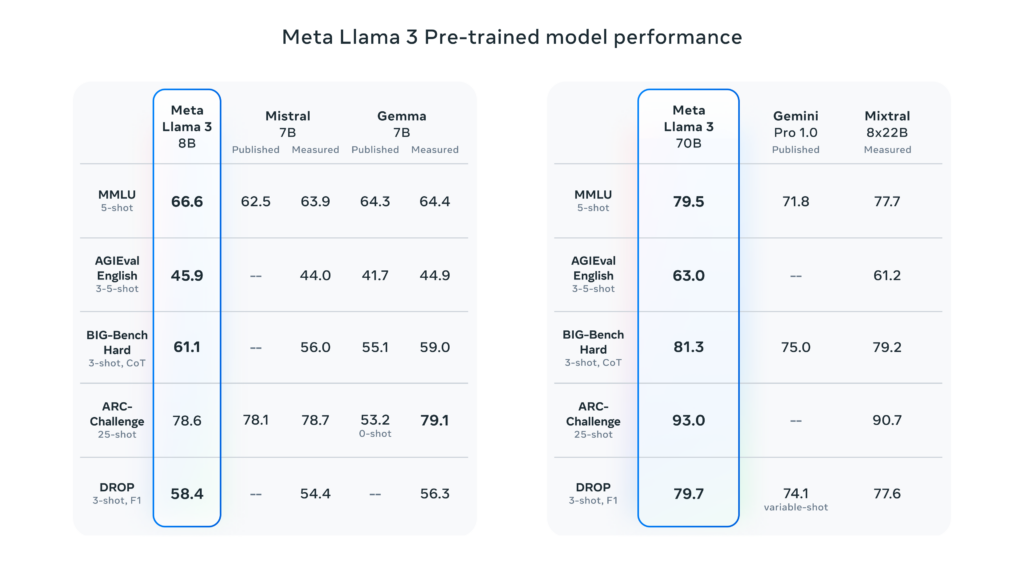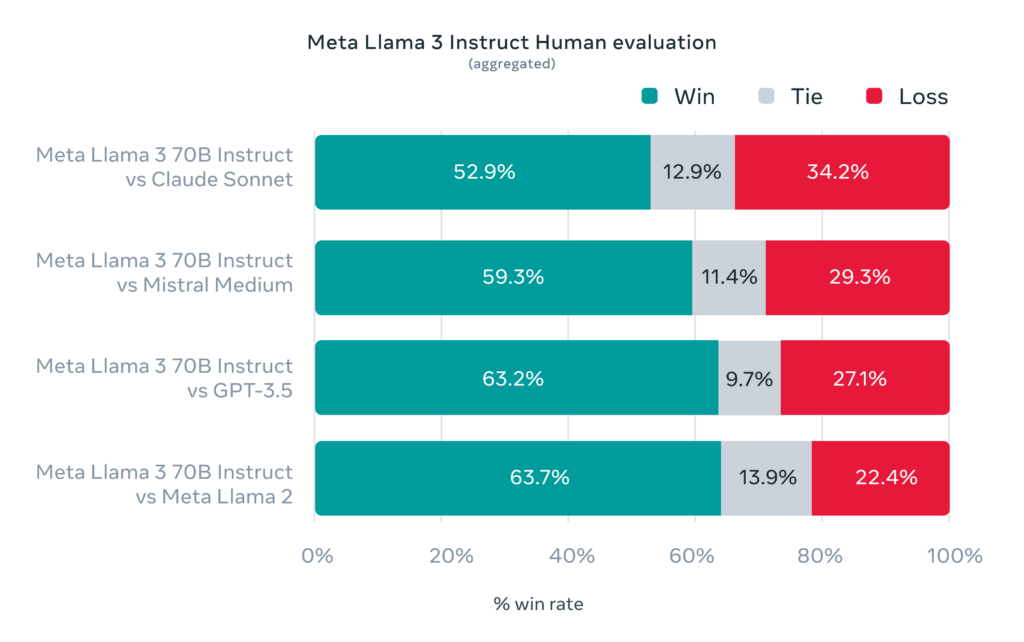Meta AI announced the release of Llama 3, the latest iteration in its series of open-source language models. This release marks a notable advancement in the accessibility and functionality of AI technologies, positioning Llama 3 as a robust competitor to proprietary models from leading tech companies like Google.
Overview of Llama 3’s Capabilities
Llama 3 introduces two new models with significant enhancements over their predecessors: one with 8 billion parameters and the other with 70 billion parameters. These models have been trained unprecedentedly, utilizing over 15 trillion tokens from publicly available data sources. This training set is seven times larger than that used for Llama 2, and it includes a more diverse range of languages and four times the amount of code data.
The performance improvements in Llama 3 are evident in its ability to outperform established AI models, such as Google’s Gemini 1.5 Pro, in various AI benchmarks. These benchmarks test capabilities crucial to practical AI applications, such as logical reasoning, code generation, and the ability to follow complex instructions.

Technological Enhancements
Llama 3 is built on a decoder-only transformer architecture, which is significant for its efficiency in processing large data sequences. The model utilizes a sophisticated tokenizer with a vocabulary of 128,000 tokens, which enhances its ability to understand and generate nuanced text.
Additionally, the models are designed with a context window of 8,000 tokens. This feature allows Llama 3 to handle extended dialogues or documents, maintaining coherence over longer stretches of text compared to many existing models. Such capabilities are critical for applications ranging from automated content generation to interactive AI assistants.

Safety and Security Innovations
Meta has integrated several new tools to enhance the safety and security of Llama 3’s outputs. These tools include Llama Guard and Cybersec Eval, which help monitor and mitigate potential abuses of the technology, such as generating misleading information or inappropriate content. Another significant addition is Code Shield, a new feature that prevents the model from generating insecure or harmful code.
Future Developments and Availability
Meta AI has outlined ambitious plans for the further development of Llama 3. Future enhancements will focus on expanding the model’s multilingual capabilities and increasing the context window size, which will enhance the model’s utility in complex AI tasks. Meta is also developing larger models, with some designed to have over 400 billion parameters. These models are expected to offer advanced features such as multimodality, enabling them to process and understand text, images, and other data types.
Llama 3 models are now available for download on platforms like Databricks, Google Cloud, and Amazon SageMaker. In the coming months, they will be available on other major cloud platforms, such as IBM Watson and Microsoft Azure. Meta’s strategy involves enhancing the technical prowess of their models and ensuring they are widely accessible to foster innovation in the AI field.
In summary, Meta AI’s release of Llama 3 represents a significant step forward in the democratization of AI technology. It offers state-of-the-art capabilities that were previously only available through proprietary models. With its advanced features and open-source accessibility, Llama 3 is set to influence a wide range of AI applications across industries.
Source: Meta
Like this article? Keep up to date with AI news, apps, tools and get tips and tricks on how to improve with AI. Sign up to our Free AI Newsletter
Also, come check out our free AI training portal and community of business owners, entrepreneurs, executives and creators. Level up your business with AI ! New courses added weekly.
You can also follow us on X